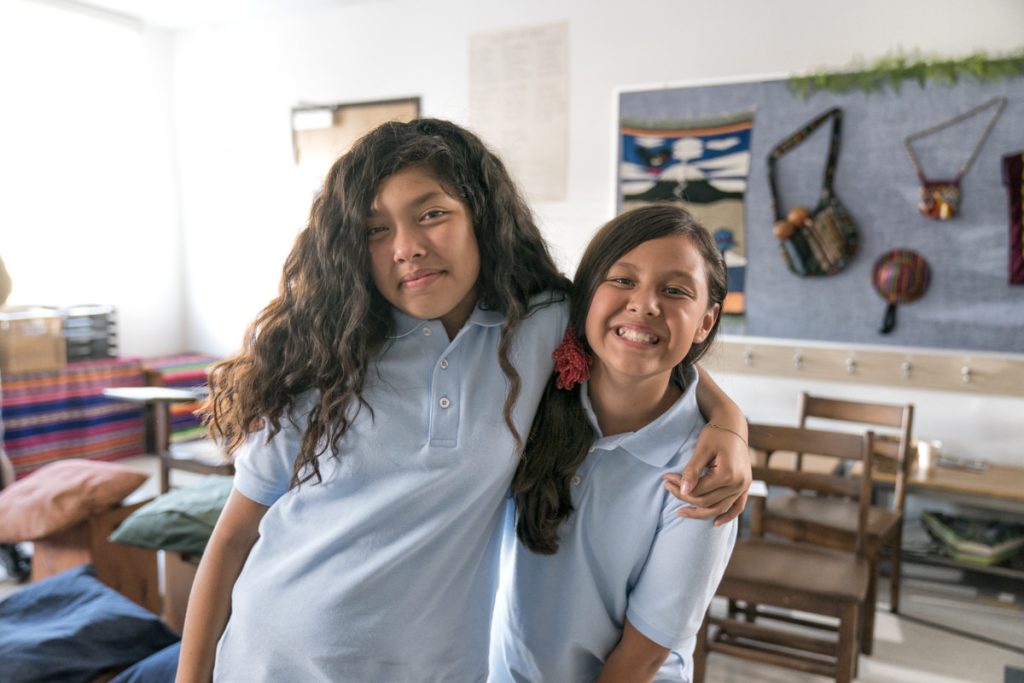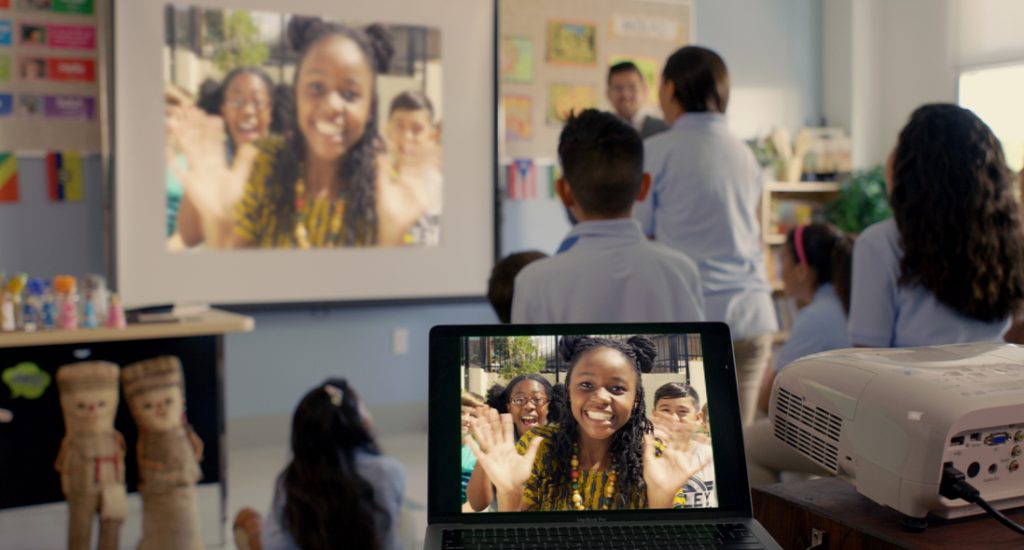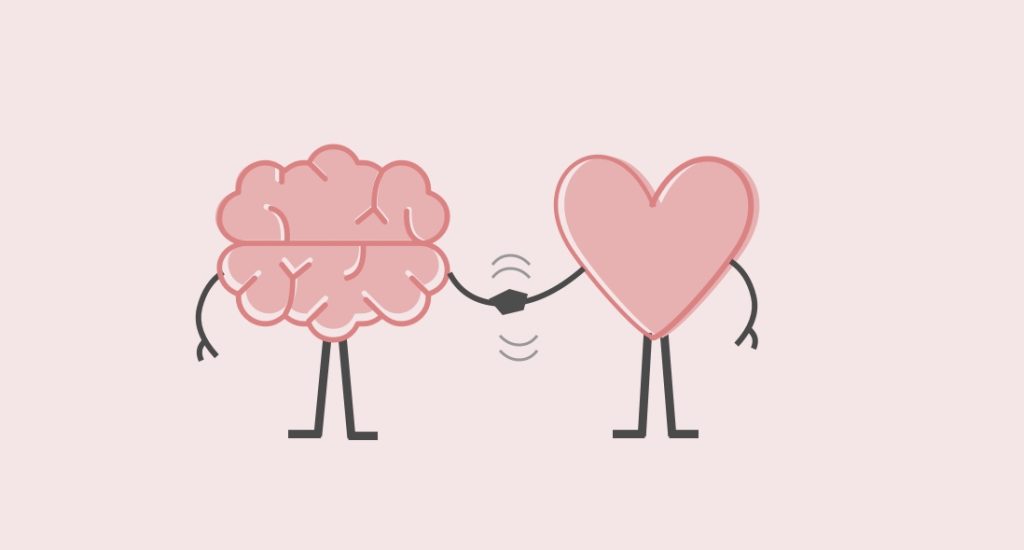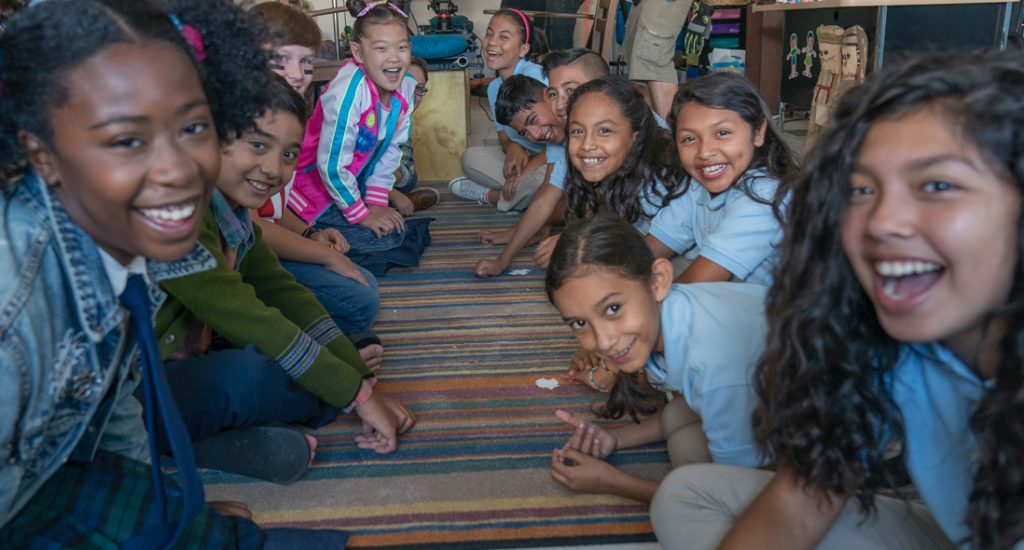Cooperation is a foundational life skill for students to develop as they learn to navigate relationships in the classroom, at home, and eventually, in the workplace. Being relevant at every stage of life, it is no surprise that cooperation is recognized as a civic virtue in the U.S. National Curriculum for Social Studies College, Career, and Civic Life (C3) Framework.
When students cooperate, they must consider each other’s perspectives and experiences, listen to each other’s ideas, respond in a respectful and positive manner, and work together to achieve a common goal. Cooperation is also one of four core skills we highlight in all Empatico activities to support meaningful connections between classrooms that meet and collaborate virtually through our online tool.
Empatico supports opportunities for student-to-student cooperation through activities like Helping Hands. During this activity, students describe ways that people in communities benefit from working together; this includes their own contributions and the contributions of other children. Before and beyond connecting with other classrooms through Empatico, there are several opportunities to reinforce cooperation within your classroom.
As an educator you can help your students practice cooperation through a number of small yet meaningful daily practices, such as:
- Set time aside for fun, team-building activities and games (particularly at the beginning of the school year) that require students to work together toward a common goal. These will help create a sense of community in the classroom, foster relationships, and build trust among students.
- When students are working together toward a common goal, assign students roles that will support the whole group’s collective task (rather than divvying up work into separate tasks).
- During conflicts between peers, help students work together to come up with a ‘win-win solution’ that meets each side’s needs. Emphasize perspective taking and respectful communication while promoting a cooperative mindset.
Below are a few ‘mini-lessons’ you can also try in your classroom to practice cooperation. These mini-lessons can be adapted to teach cooperation across all elementary grade levels.
Mini-lessons to teach cooperation in your classroom
Lesson #1: Promote a ‘better together’ mindset (estimated time: 20 min)
- As a class, generate ideas about what specific actions are involved with cooperation and write (or draw!) them on the board/chart paper to display for students to see throughout the year. Revise this list as necessary if relevant situations arise later on.
- Read stories that emphasize teamwork and how cooperating is better than competing with each other (e.g., The Fighting Mynahs).
- Lead class discussions that help students link the cooperation concept to their personal experiences. For example, how do they cooperate with siblings or other family members to achieve group goals at home or in their communities?
Lesson #2: Working together to achieve a common goal (estimated time: 30-45 min)
You can teach and reinforce cooperation skills in any activity that requires students to work together to achieve a common goal by including a few key components before, during, and after the activity:
Before the activity:
- Set clear goals for the activity that emphasize cooperation.
- Assign roles so each student is involved in helping achieve the common goal(s).
- Remind students of established class norms, such as:
- Share and take turns
- Give everyone a chance to contribute
- Do your part (fulfill your role) to contribute to the group goal
- Encourage and help fellow group members
- Cooperate rather than compete with each other (individuals do not ‘win’ in cooperative activities; it is a team effort)
- Practice respectful communication by actively listening, taking turns speaking, respectfully responding to others’ ideas/opinions
- Practice perspective taking by considering other people’s perspectives respectfully
During the activity:
- Reinforce class norms and positive behavior, and remind students of their common goal.
- Support and model student roles to ensure they are fostering group cooperation as intended:
- Some examples of roles include: Facilitator (ensures everyone participates, reminds group members of time, etc.), Materials Manager (hands out and turns in materials), Checker (ensures work is complete), and Reporter (reports on the group’s progress or final product).
- Listen and look for specific role behaviors during group work (for example, you might listen in on one group and encourage the Facilitator to invite all group members to participate in a discussion, or you might take a look at the Recorder’s notes/diagram and offer feedback on the group’s progress).
- Ask students with specific roles for updates on the group progress or needs (for example, you might visit each group and ask the Materials Manager if they have all the necessary supplies for the task).
After the activity:
- Reflect: Reflection is key for developing and learning to value cooperation skills. After the activity, ask students questions such as:
- What was your experience like during this activity?
- Which cooperation strategies worked well? Which didn’t? What might you improve/change next time?
- Why is cooperation important? (Encourage connections to personal experiences)
- How can we apply these skills to future situations in which we must work together to achieve a goal?
For more ideas on how to promote cooperation skills, check out the following websites:
- Thumb Wrestling: Competition Versus Cooperation
- Three Ways to Build Teamwork in Your Elementary School Classroom
- 21 Fun Team Building Activities For Kids
- Tip Sheet: Debriefing Cooperative Games
- 10 team building games that promote critical thinking
To learn more about Empatico Skills like cooperation, read our recent posts on 21st century skills and teaching empathy. You can also explore the skills and additional mini-lessons by downloading our Empatico Skills Overviews & Mini-Lessons.



